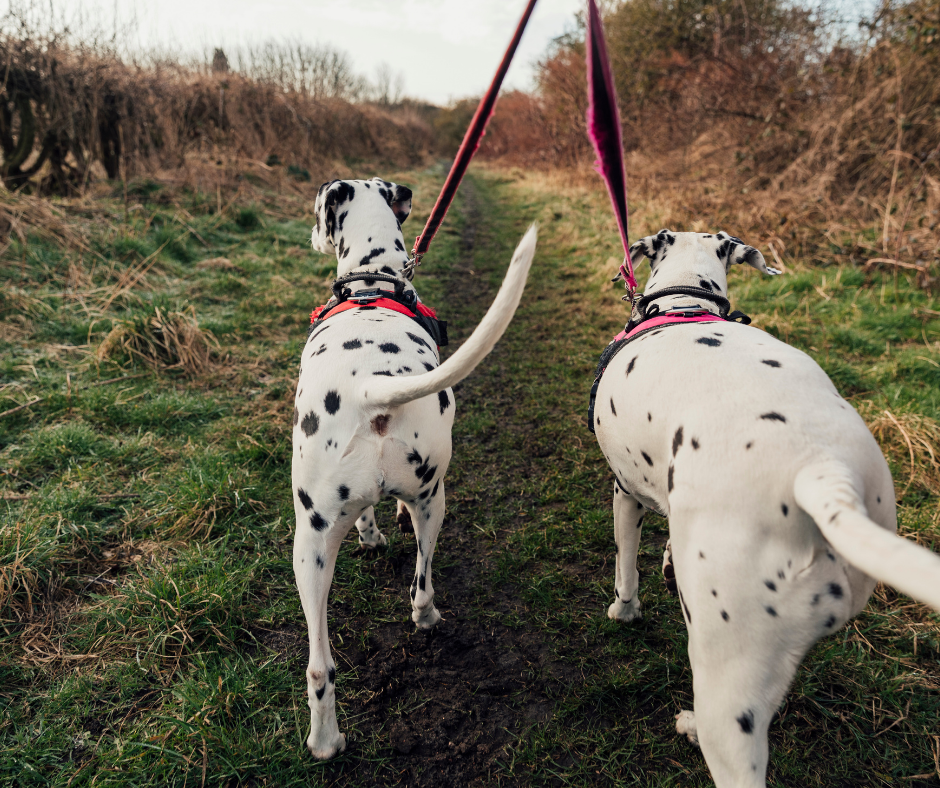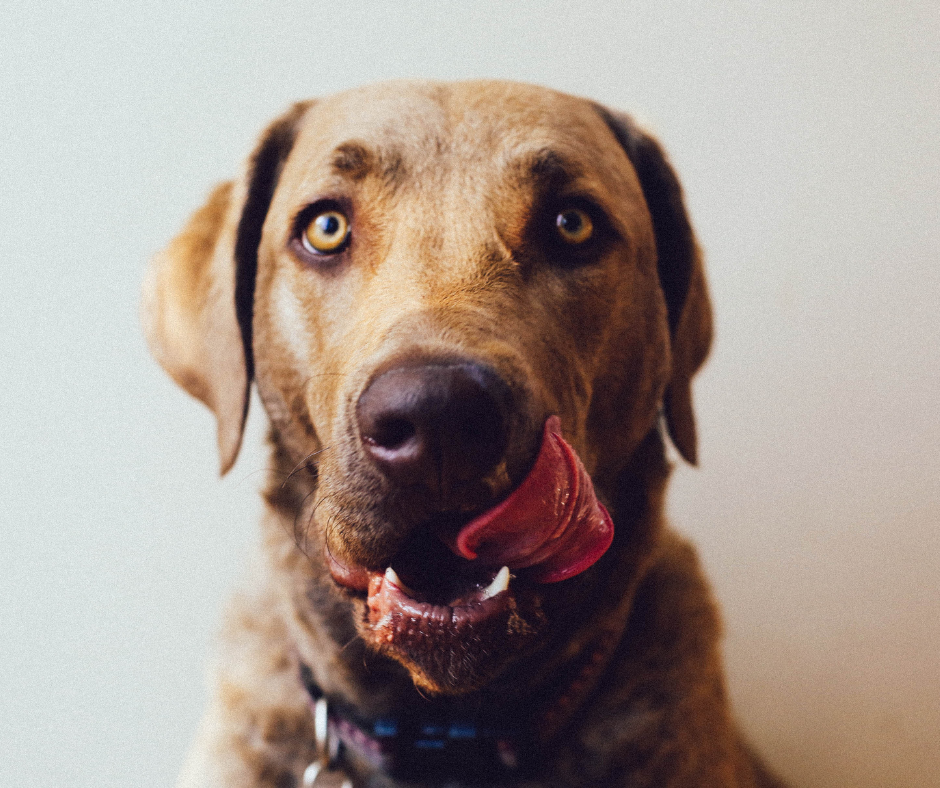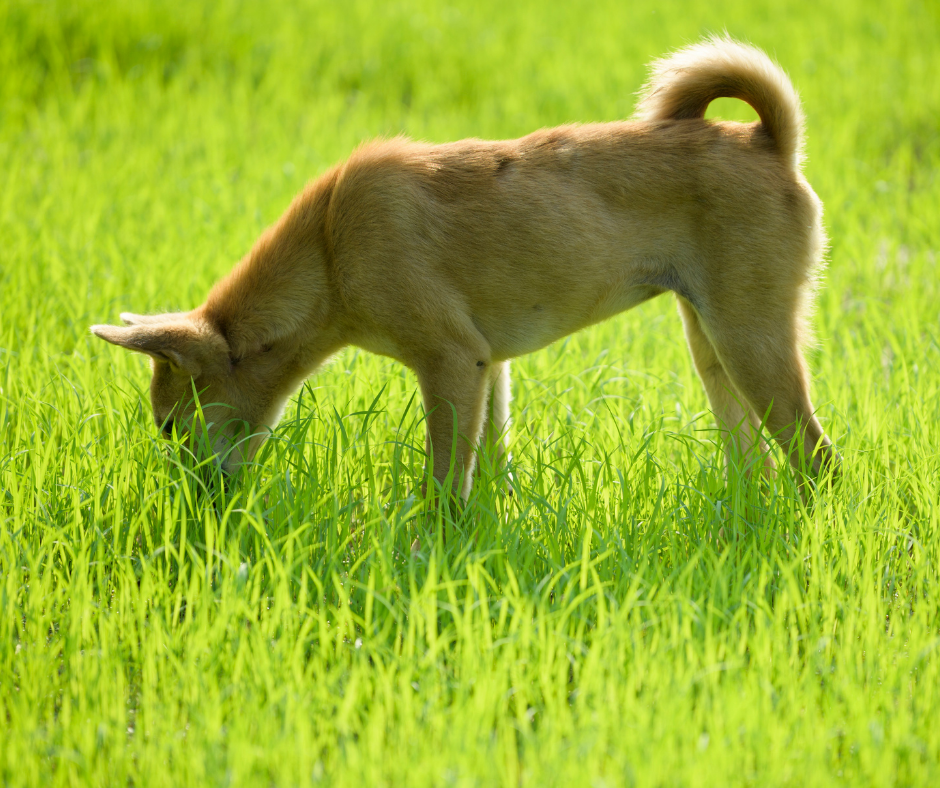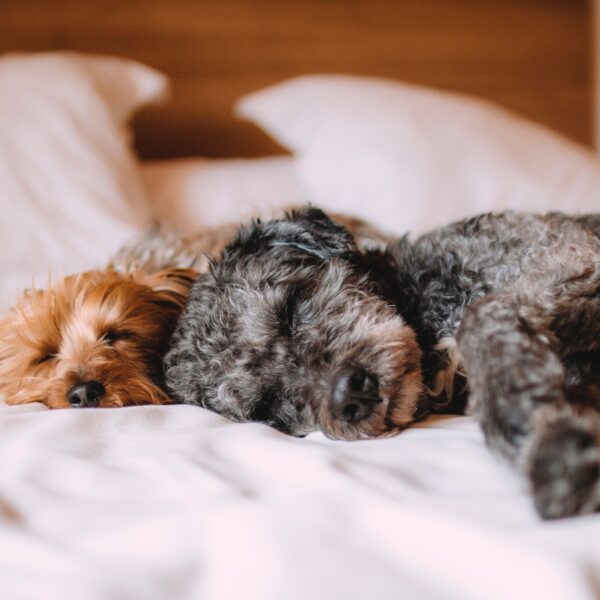Reading a dog’s body language is a useful skill to have. How many times do we wish that our pooch could tell us what they are thinking? Well, it turns out that they are “talking” to us, we just need to take the time to understand what they are saying.
What does a dog’s body language mean?
When we come home from a long day at work to be greeted by a waggy tail we all know that our dog is pleased to see us. However, there is far more in your pooch’s vocabulary than a mere tail wag and they have an extensive array of non-verbal communication tools at their disposal:
- Facial expressions
- Ear position
- Stance or body position
- Barking
- Licking

Meaning of dog tail wagging
Interestingly a wagging tail has more to it than meets the eye, with both height and speed of the wag enabling our pooches to “say” a variety of things. The waggy tail that warms your heart when you get home is of moderate to fast speed and held relatively high. The faster the wag, the higher the excitement and if you get a bottom wiggle your pooch is fit to burst! If a dog tail is down, a low, slow wag suggests they are feeling a bit unsure of themselves, trying to signal that they are not a threat. A wagging tail held very high or even arched over the back can be a sign of aggression. So, a waggy tail is not always a happy one and picking up on other behavioural cues can help to decipher the meaning.
Why dogs bark
Does your doggo seem to like the sound of his voice or do you share your life with a quieter soul? Dogs will bark to signal a range of emotions and you will soon learn what your pooch is trying to tell you.
- Excitement – tends to be a higher pitched bark with a wagging tail
- Attention – maybe your pooch is peckish or thinks it’s time for walkies
- Fear or anxiety – usually accompanied by low tail and head down
- Aggression – high or arched tail
- Senile – older animals may bark due to doggy dementia, known as canine cognitive dysfunction
Why do dogs yawn so much?
Yawning in dogs is most often associated with stress or anxiety. Your pooch yawns during a trip to the vets because they may be feeling a bit anxious and probably not because they are bored or tired. It is also used as a means of avoiding conflict between dogs; in wolf packs dominant dogs may yawn to calm the pack. Did you know that yawning is contagious in dogs just as in people? Your pooch is more likely to yawn if one of their four-legged or human friends yawns!
Why do dogs chatter their teeth?
Dogs’ teeth can chatter for a number of reasons and can be a sign of cold or anxiety, just like in people. If it carries on for a prolonged period it is worth checking for any underlying causes. Dental disease is the most common medical reason for a chattering jaw so a trip to the vets to rule this out, plus other more serious conditions, is wise.

Why dogs lick you?
Does your pooch greet you with an affectionate lick? Doggy kisses may not be to everyone’s taste, but your canine companion is likely to be showing you affection. This behaviour has its roots way back in evolutionary history when wolf pups would lick their mum to encourage her to get food for them. The behaviour remains a signal of affection to this day. It’s also a great way to get your attention…
Why do dogs paw at you?
In the doggy attention-seeking repertoire, pawing at you comes high up the list. It is used as you might expect, purely to turn your focus in their direction. This is handy if they need to tell you some important doggy news, your pup may be asking to go outside for a toilet trip for example. However, pawing can become a habit; if a gentle paw on your human’s leg is rewarded with an ear rub every time why wouldn’t you carry on? If you suspect your pooch has formed a pawing habit, try ignoring the behaviour. Easier said than done and you will have to be persistent. If this is not your cup of tea then how about providing a distraction? When your pooch is sitting calmly next to you with all 4 paws on the ground offer them their favourite toy to play with, a tasty morsel or just some attention from you.
Why do dogs dig in their beds?
One reason that bed digging is used by dogs is to create a comfy space to settle down for a well-earned rest. The habit also has its origins in years gone by when scraping helped to create a safe place for your doggy’s ancestors to rest.

Why will dogs eat grass?
If your pooch seems to be partial to snacking on grass, you may think that this is a cause for concern. Grass-eating in an otherwise well dog can be completely normal and simply that they like the taste! However, if this is not normal for your pet, or they are showing any other signs such as vomiting or a loss of appetite then contact your vet for advice.
So next time someone says, “if only they could talk”, in their own unique doggy way, they can.
Now you know what your dog’s body language means, have a look at our dog training article here.


